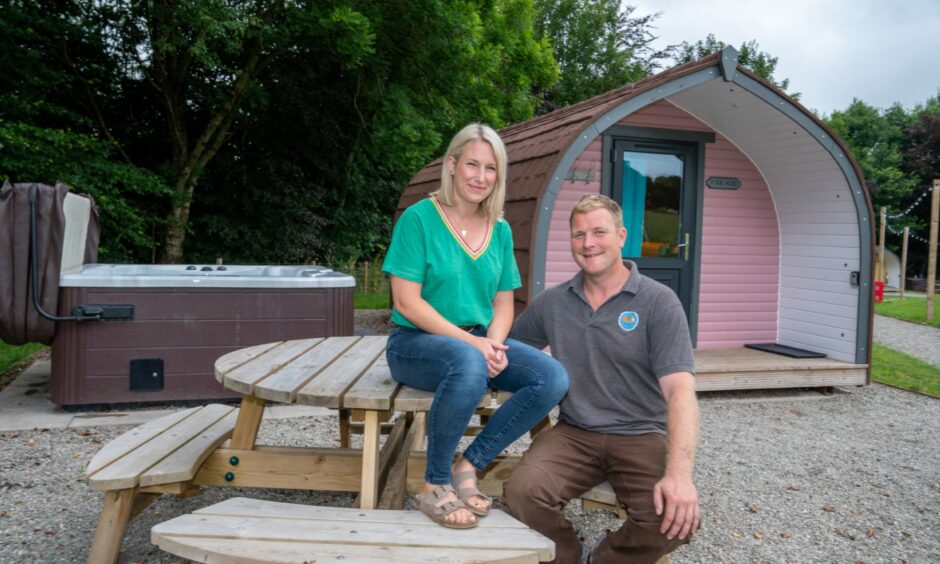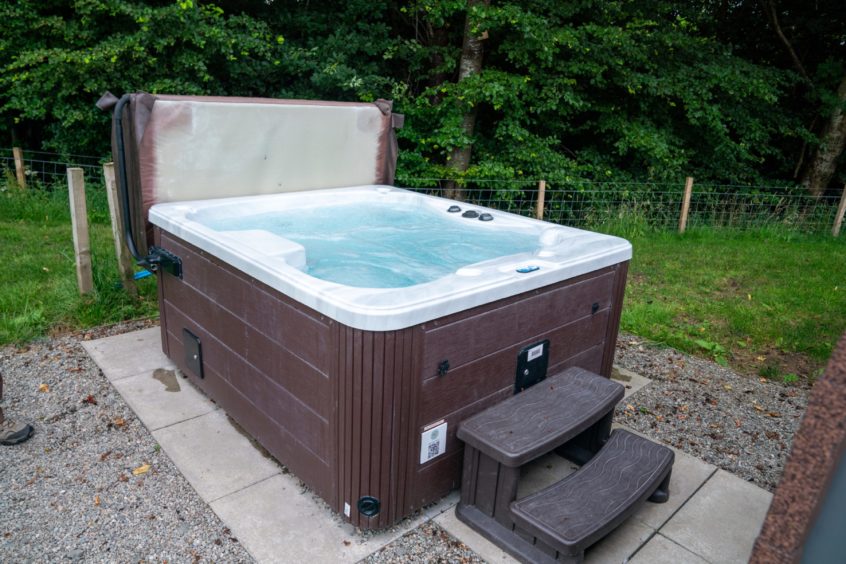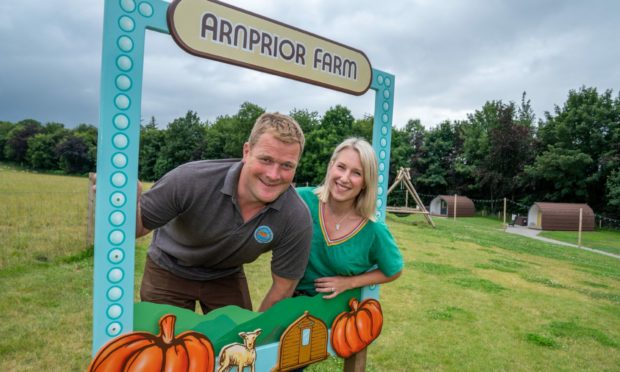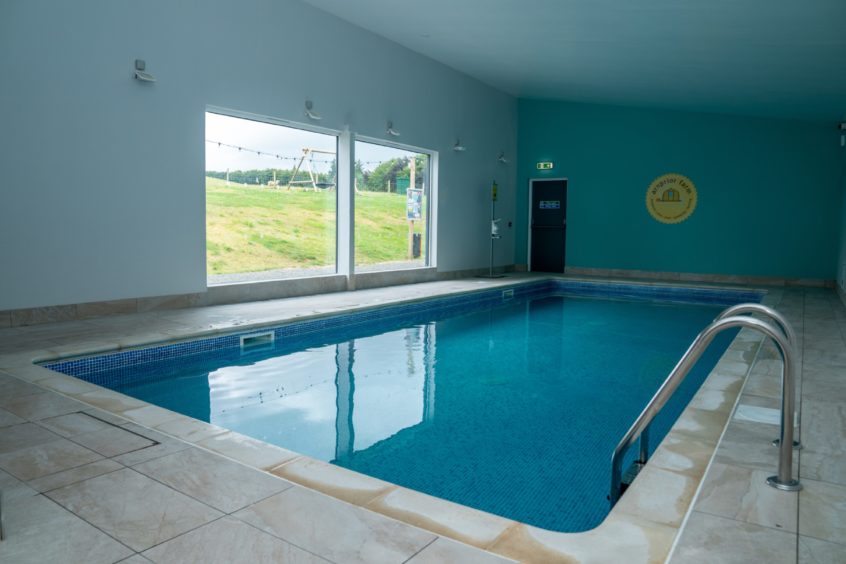The setting up of a glamping and swimming pool complex looked like the ideal business expansion to Stirlingshire farmers, Rebecca and Duncan McEwen, when they embarked on the development two years ago.
Between committing to the idea and today, however, the couple have faced the ultimate on/off visitor activity.
“We opened our new venture in October 2019 and Covid-19 struck in March 2020,” said Rebecca. “From then on it became a constant tale of open, closed, open, and closed again.
“The worst part of the process was having no glamping money coming in but still having to spend the bulk of the day in the office returning deposits to people who had previously booked ahead in the hope of being able to travel.”
Located at Arnprior Farm, close to the centre of Arnprior village, the couple’s four glamping pods are busy enough now. There’s even a healthy waiting list of people hoping for someone else to cancel.
It’s much the same with the swimming pool.
“Covid regulations meant we couldn’t open the pool to glamping visitors on a shared basis as we’d done before,” said Rebecca.
“Previously, a pod reservation ensured automatic swimming slots, but that changed with the pandemic. As a result, I had to create a sort of secret calendar to reserve slots for those booking ahead, as opposed to day visitors wanting swimming slots on a more short-term basis. It all took quite a bit of navigating.”
Recent government moves in England, designed to boost the provision of staycation facilities, have freed some farmers to set up camping units without the need for planning permission. The pre-Covid starting point for Rebecca and Duncan, however, was a very different proposition.

Their planning began in 2017 at which time their on-farm biomass plant was already producing sufficient surplus heat to warm both the pool and the pods.
Rebecca and Duncan already had previous experience of setting up on-farm visitor attractions at Arnprior. Their first creation, opened in 2015, was a ‘select-your-own pumpkin’ patch, followed a year later by the setting up of a lambing experience which allowed people to view the farm’s lambing shed from a special viewing area.
Both initiatives have worked well with pre-Covid visitor numbers for the pumpkins totalling 6000 a year, alongside 30 people an hour during lambing experience weekends.
“The aim for our visitor ventures has always been to give people an opportunity to enjoy being on a working farm,” said Rebecca. “The field next to the glamping area, for example, has sheep it in, plus a couple of Highland cows.”
During the Covid lockdowns, of course, the couple had to endure several months of no visitor-based income, across all their ventures.

“We did get a little government funding to cover the cancellation of the lambing experience but there wasn’t anything else available to us, due to this part of our business being listed as a camping and self-catering operation,” said Rebecca.
“If we’d been placed in a leisure category there would have been better support available.
“As things stand now, however, it’s just good to be open again.”

